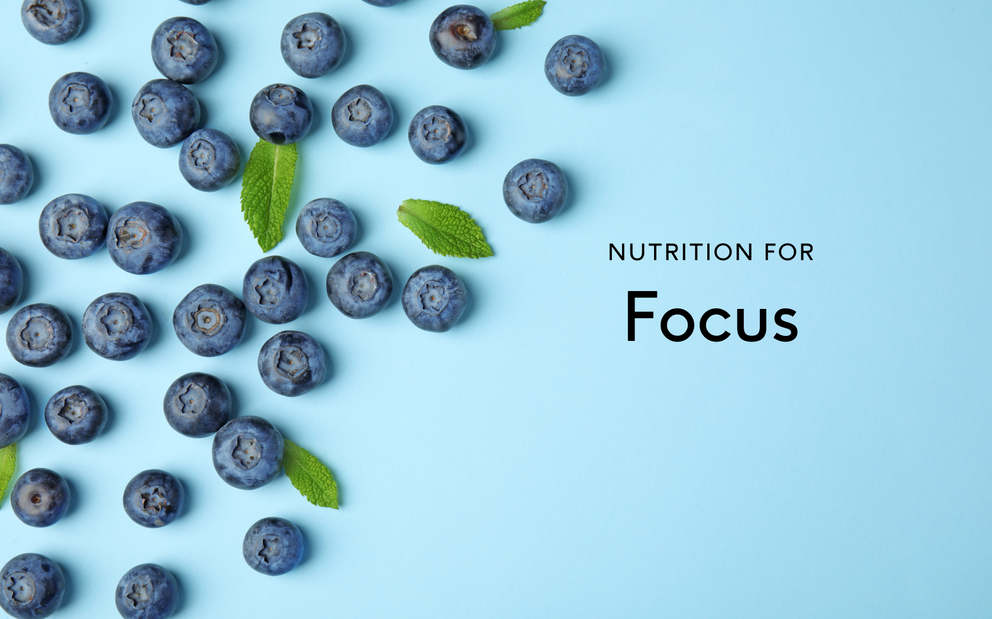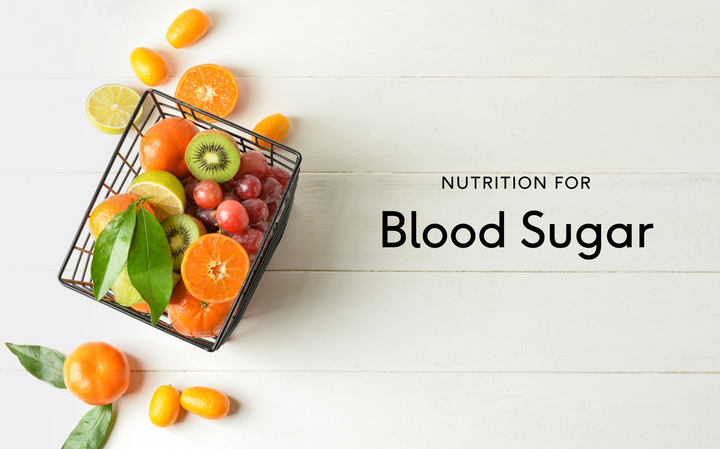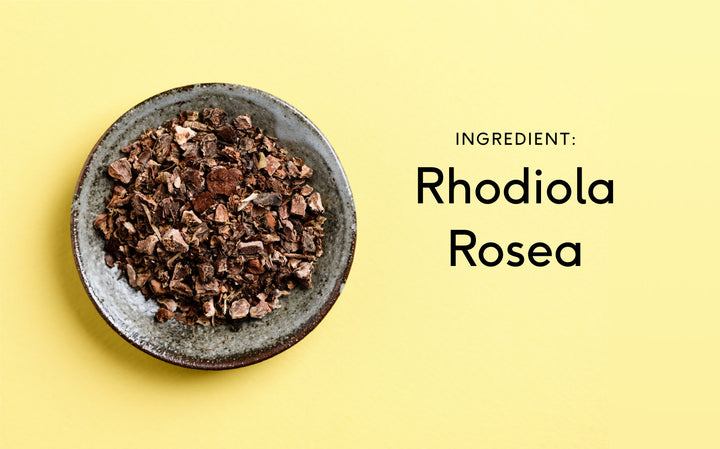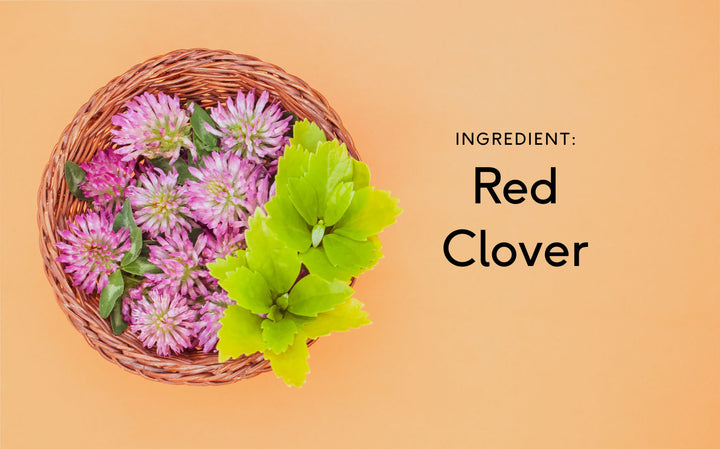Best 5 Foods to Help You Focus Naturally
Table of contents

Feeling energetic and focused does not always come naturally. If you are having trouble paying attention to the task at hand - your diet might be responsible. Try to incorporate these 5 foods and enjoy the returned ability to tackle daily tasks with ease.
Which foods are best for focus?
When you are in a state of “flow,” your mind and body are harmonised. You can achieve this high-performing state more easily with antioxidants, B vitamins, and other essential vitamins and minerals that improve your neurological well-being. Each of the following five foods contributes to your nervous system performance in a substantial way:
1. Blueberries
Blueberries get their colour from anthocyanins, potent antioxidants that may prevent neurodegenerative disease and improve brain performance.
- Calories per 100g: 60
- Grams of fibre: 5
- Grams of protein: 5
- Grams of fats: 0
- Grams of carbs: 12
2. Spinach
Along with iron, vitamin C, and other nutrients, spinach is also a great source of folic acid, which boosts brain performance and prevents the neurological effects of ageing.
- Calories per 100g: 23
- Grams of fibre: 2
- Grams of protein: 3
- Grams of fats: 5
- Grams of carbs: 4
3. Flax
Flax contains magnesium and B vitamins, which round out this grain’s impressive nutrient profile. You can substitute flax for wheat with most recipes.
- Calories per 100g: 550
- Grams of fibre: 28
- Grams of protein: 20
- Grams of fats: 43
- Grams of carbs: 30
4. Turmeric
Curcumin, the main ingredient in turmeric, is a potent neurological antioxidant, and it improves your nervous system health.
- Calories per 100g: 180 (powdered)
- Grams of fibre: 12 (powdered)
- Grams of protein: 0 (powdered)
- Grams of fats: 8 (powdered)
- Grams of carbs: 36 (powdered)
5. Broccoli
Broccoli is full of vitamin K, which your body needs for the generation of special fats that shield and insulate your nervous system.
- Calories per 100g: 30
- Grams of fibre: 5
- Grams of protein: 3
- Grams of fats: 0
- Grams of carbs: 7
Benefits of blueberries for focus
Why are blueberries good for focus?
The anthocyanins in blueberries have excellent antioxidant properties that appear to be more effective in the nervous system than anywhere else in the body. Blueberries are also great sources of vitamin C, another antioxidant your nervous system needs to promote optimal focus.
When and how to eat blueberries
Blueberries are usually available frozen, fresh, or dried. You can snack on dried blueberries on the go, fresh blueberries are great for snacks at home, and frozen blueberries blend perfectly into smoothies.
How are blueberries under-appreciated?
Anthocyanins don’t get the respect they deserve. Widely used as colouring agents in the processed food industry, the antioxidant properties offered by these plant pigments are often overlooked.
Dish ideas
Mix blueberries, bananas, mangoes, and your choice of liquid base in a blender to make a focus-boosting antioxidant smoothie.
Benefits of spinach for focus
Why is spinach good for focus?
Like blueberries, spinach also contains vitamin C, but where it stands out is its folate content, which is higher than most other fruits and vegetables. Folate is a B vitamin that your body uses to make serotonin, dopamine, and other neurotransmitters, so eating plenty of folate-rich spinach is a great way to boost your focus throughout the day.
When and how to eat spinach
Spinach has a mild texture when cooked or raw, which makes it stand out less in salads than kale, spinach, arugula, or any other greens with ridges or irregular shapes. Therefore, it’s easy to incorporate spinach into practically any kind of savoury dish.
How is spinach under-appreciated?
Spinach is mainly appreciated for its iron, but this vegetable also contains vitamin C, folate, and plenty of other important vitamins and minerals. This leafy green is far more nutritious than lettuce, and some people find it tastier than similar vegetables.
Dish ideas
Add frozen spinach to your next smoothie. You’ll hardly notice the taste, but the added nutritional benefits will be impressive.
Benefits of flax for focus
Why is flax good for focus?
Traditional medicine uses flax for various neurological disorders, and this grain contains ample portions of both B vitamins and magnesium. Each of these substances has neuroprotective properties, which means they provide your brain with the protection it needs to stay focused.
When and how to eat flax
Flax is often available in flour form, and you can also purchase flax seeds on their own. You don’t have to cook flax seeds before you eat them.
How is flax under-appreciated?
While many traditional cultures use flax for neurological and cardiovascular ailments, this grain is mainly overlooked in comparison to wheat. It’s possible that flax is more beneficial than wheat, however, and this nutritious grain’s focus-boosting properties shouldn’t be ignored.
Dish ideas
Feel like making some flax bread from home? Here’s a recipe to try.
Benefits of turmeric for focus
Why is turmeric good for focus?
Turmeric and its active component, curcumin, have received a lot of attention in recent years for their potent health benefits. Curcumin is one of the most powerful antioxidants yet discovered, and it appears to be effective for practically every neurological condition. That means this turmeric component keeps normal brains healthy as well.
When and how to eat turmeric
Turmeric has a strong taste, so it’s usually used as a garnish. You can also consume turmeric in powdered form, but the benefits may be reduced.
How is turmeric under-appreciated?
It has only been recently that turmeric has gained attention from scientists worldwide for its biological properties as an antioxidant, anti-inflammatory, antimicrobial, and antiviral agent. Over time, it is possible that we’ll learn the antioxidant attributes of curcumin were under-hyped regardless of the discoveries we’ve made so far.
Dish ideas
Try grating turmeric over your next salad. The taste won’t be as strong when mixed with veggies and dressing, but the focus-boosting, antioxidant benefits will still be there.
Benefits of broccoli for focus
Why is broccoli good for focus?
Broccoli is one of the only sources of sulforaphane, a powerful botanical antioxidant. This vegetable also contains vitamin K, which is necessary for proper cell signalling in the brain. Since broccoli contains lots of other essential vitamins and minerals as well, this is one focus-booster you don’t want to leave out of your new diet.
When and how to eat broccoli
You can eat broccoli raw or cooked, but this vegetable can be somewhat messy to take with you on the go. Try romanesco broccoli for a geometrical twist.
How is broccoli under-appreciated?
It might not have been your favourite food as a kid, but your parents were right when they said broccoli is nutritious. Just how much broccoli improves your nervous system health, however, is something we’re excited to learn more about in the coming years.
Dish ideas
Broccoli tastes best when cooked. Try roasting an entire broccoli head and breaking off pieces of this focus-booster with your friends.























































 Back
Back





